Equity, Diversity and Inclusion Work
My work centers on reimagining education as a dynamic space for reflection, inclusion, and transformation. Through writing, interviewing, and editorial curation, I explore how personal narrative, critical dialogue, and creative practice can shape more just and empathetic learning environments.
In response to contemporary challenges—from systemic inequities to global disruptions—I highlight the potential of storytelling, resilience, and community building across diverse settings. Drawing from lived experiences and emerging pedagogical frameworks, my contributions invite educators, practitioners, and thought leaders to reframe their approaches, embrace discomfort as a site of growth, and engage meaningfully with the world around them.
Whether through editorials addressing racial literacy, trauma, and cultural identity, or through conversations with leading voices in the field, I aim to foster dialogue that bridges theory and practice, ignites critical consciousness, and inspires action across educational, institutional, and community contexts.
Editorials
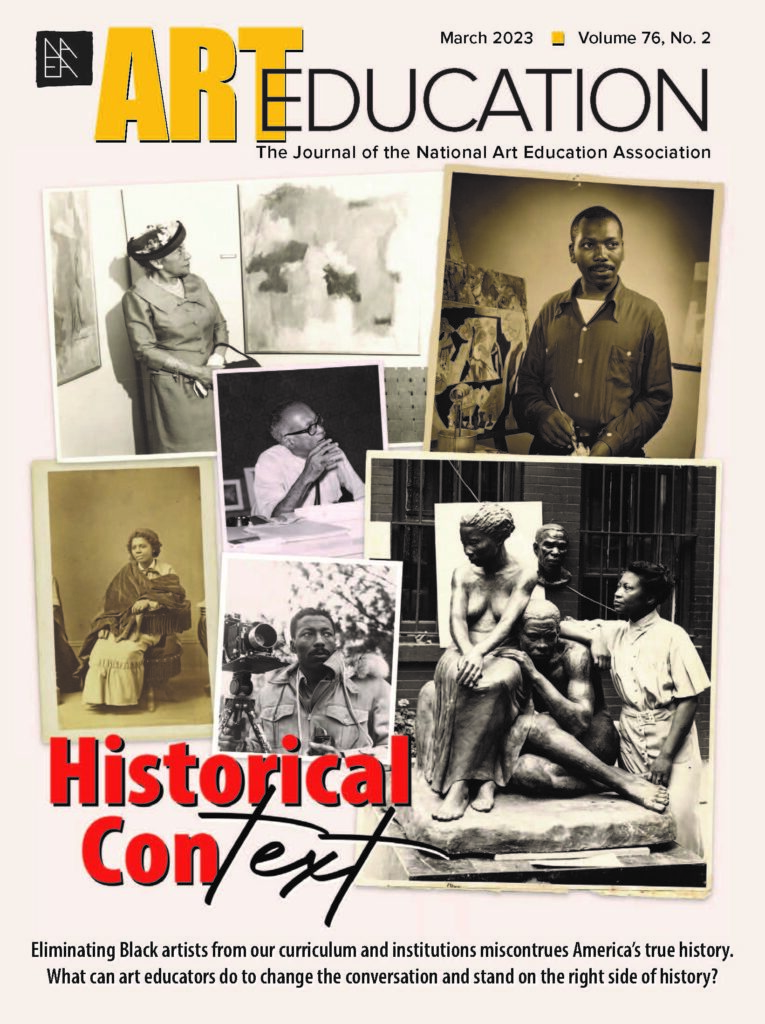
Historical Context: Eliminating Black Artists from Our Curriculum
The editorial critiques the exclusion of major Black artists, scholars, and institutions from the AP African American Studies curriculum, which weakens efforts to teach America’s full racial history. It urges educators to embrace antiracist pedagogy through principles like political clarity, protective care, deep connection, and courageous witnessing.
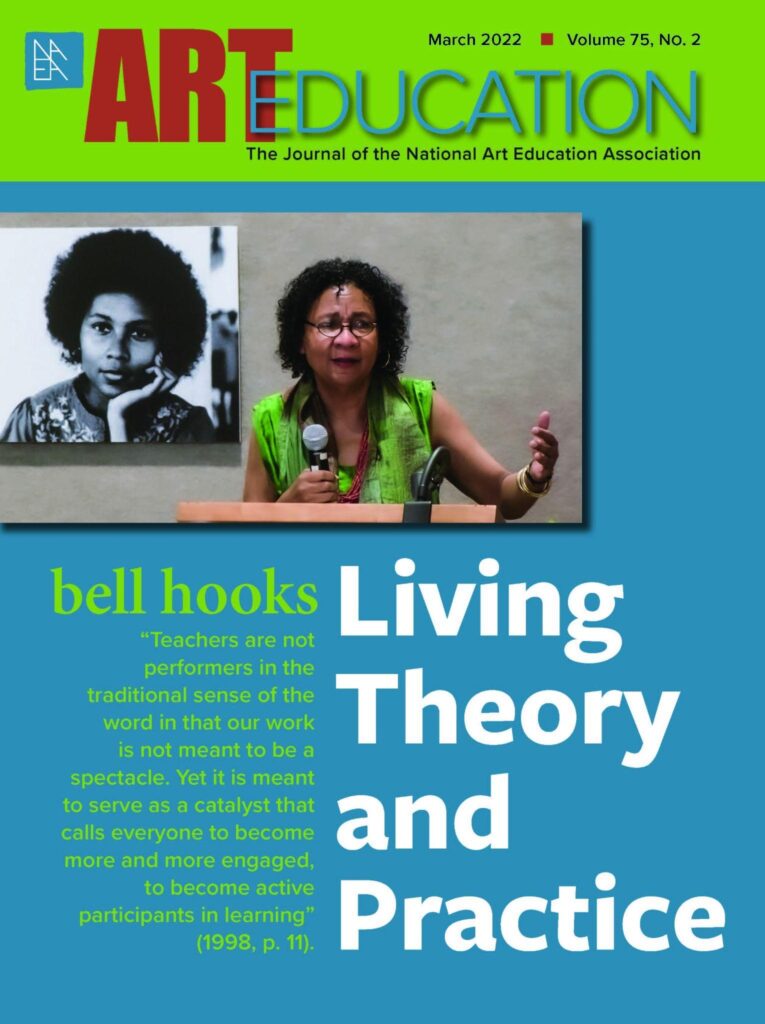
Living Theory and Practice
The editorial reflects on bell hooks’s concept of engaged pedagogy, which envisions the classroom as a space of possibility rooted in active student participation. It emphasizes uniting theory and practice to foster critical thinking, dialogue, and inclusive, transformative learning communities.
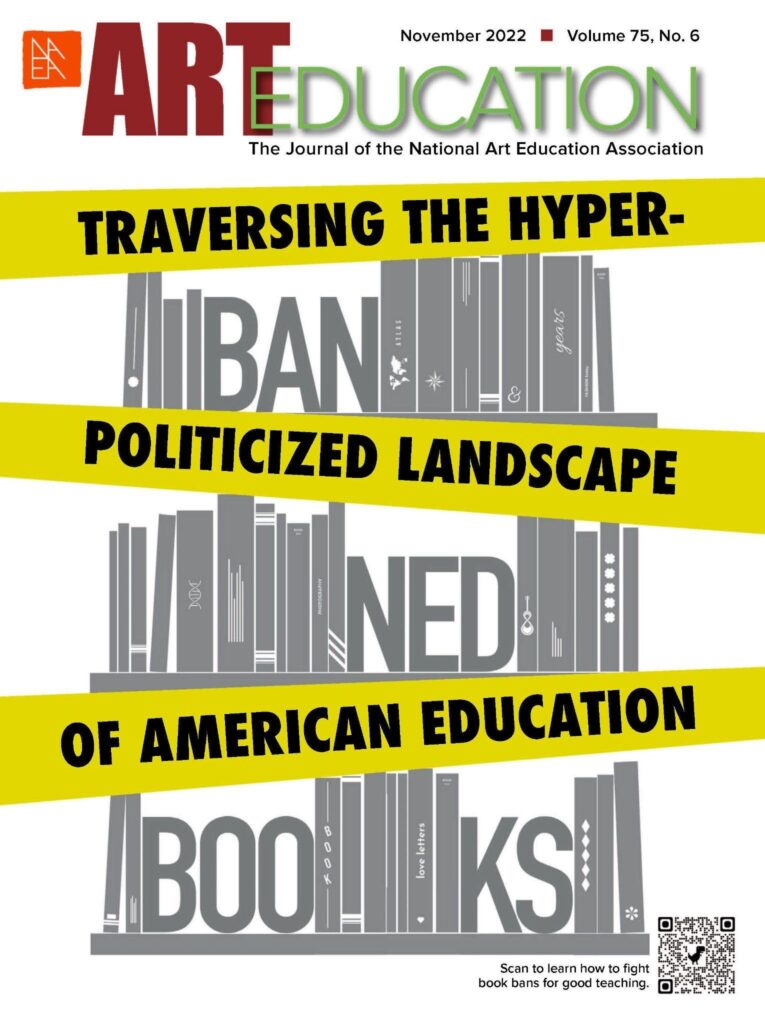
Traversing The Hyper-Politicized Landscape Of American Education
The editorial examines the politicized climate of American education and stresses the urgent need for antiracist teaching and racial literacy in art education. It highlights Gholdy Muhammad’s equity framework, which centers identity, skills, intellectualism, and criticality to confront power, privilege, and oppression.
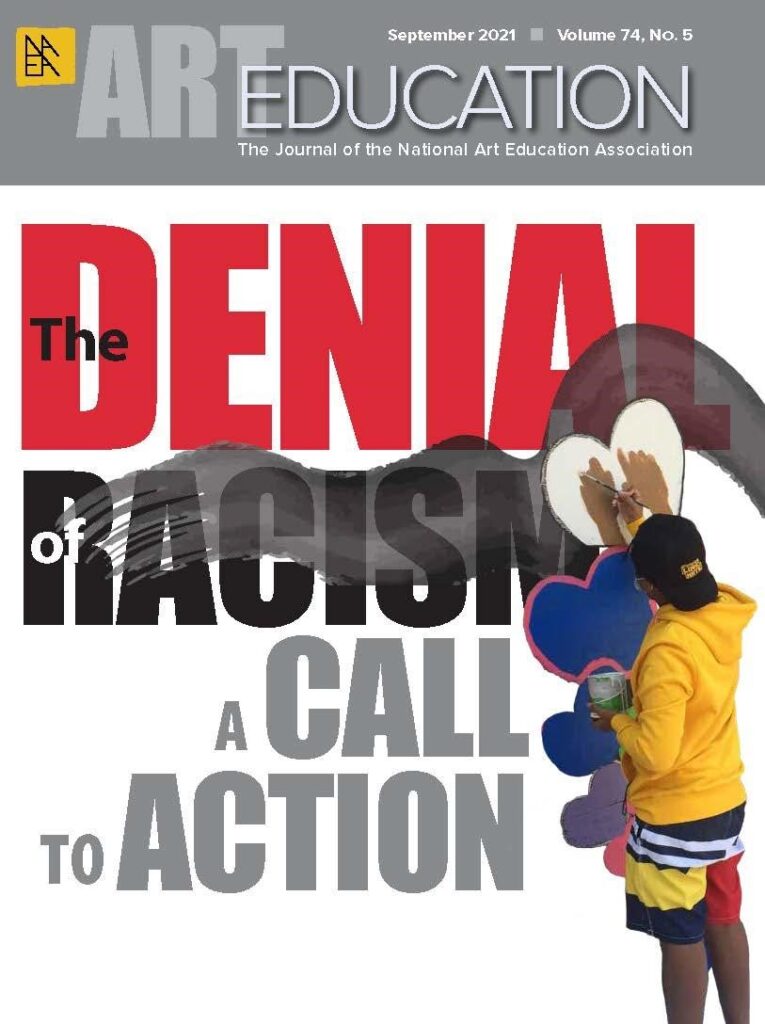
The Denial Of Racism
The editorial calls on art educators to embrace antiracist pedagogy amid attacks on critical race theory and systemic racism. It underscores the need to scaffold racial literacy, foster critical consciousness, and pursue structural change through courageous conversations and sustained action.
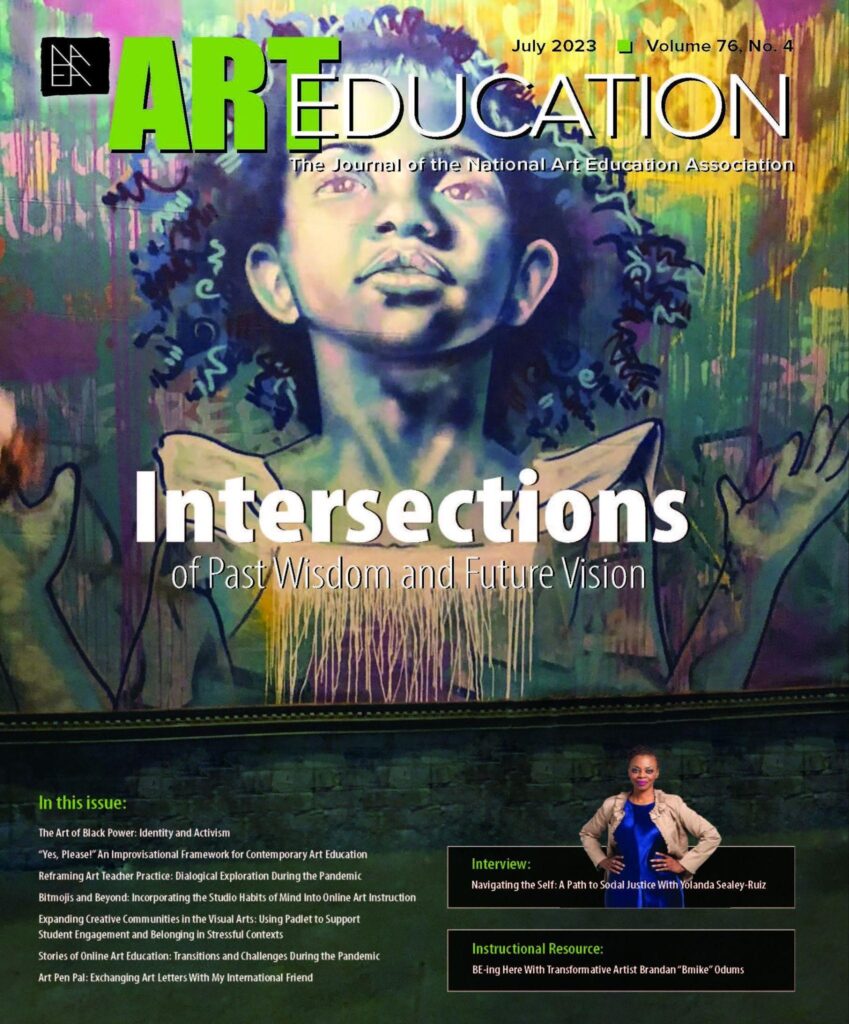
Intersections of Past Wisdom and Future Vision
The editorial explores art education’s evolving role in fostering societal change, cultural exchange, and resilience, drawing on insights from scholars like Du Bois, Davis, Dewey, Greene, and Bates. It invites educators to rethink their practices and harness art’s transformative power to inspire growth, creativity, and equity in a post-pandemic, digital world.
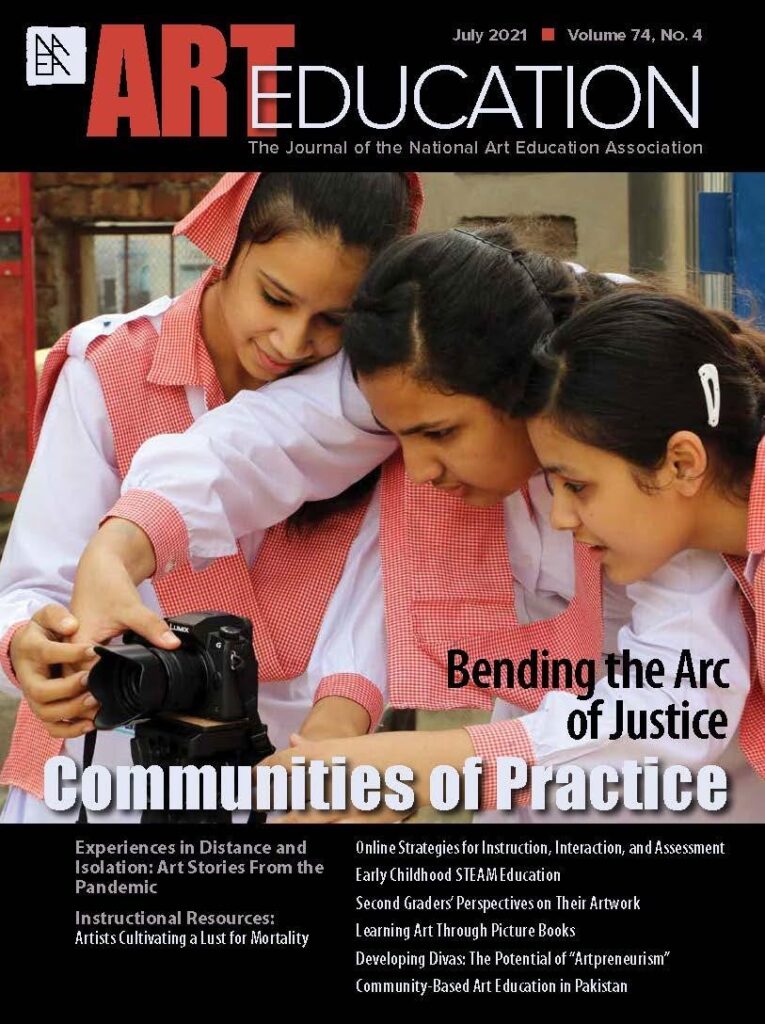
Communities of Practice
The editorial addresses ongoing racial injustices against Asian Americans, citing events like Vincent Chin’s murder and the Atlanta shootings, and calls for collective action against systemic racism. It urges educators to disrupt reductive narratives through communities of practice that foster shared knowledge, collaboration, and inclusive, justice-oriented learning.
Interviews : Voices in Education: Conversations on Equity, Leadership, and Change
Ami Kantawala in dialogue with leading scholars, exploring perspectives that inform and inspire transformative practices in education and beyond.
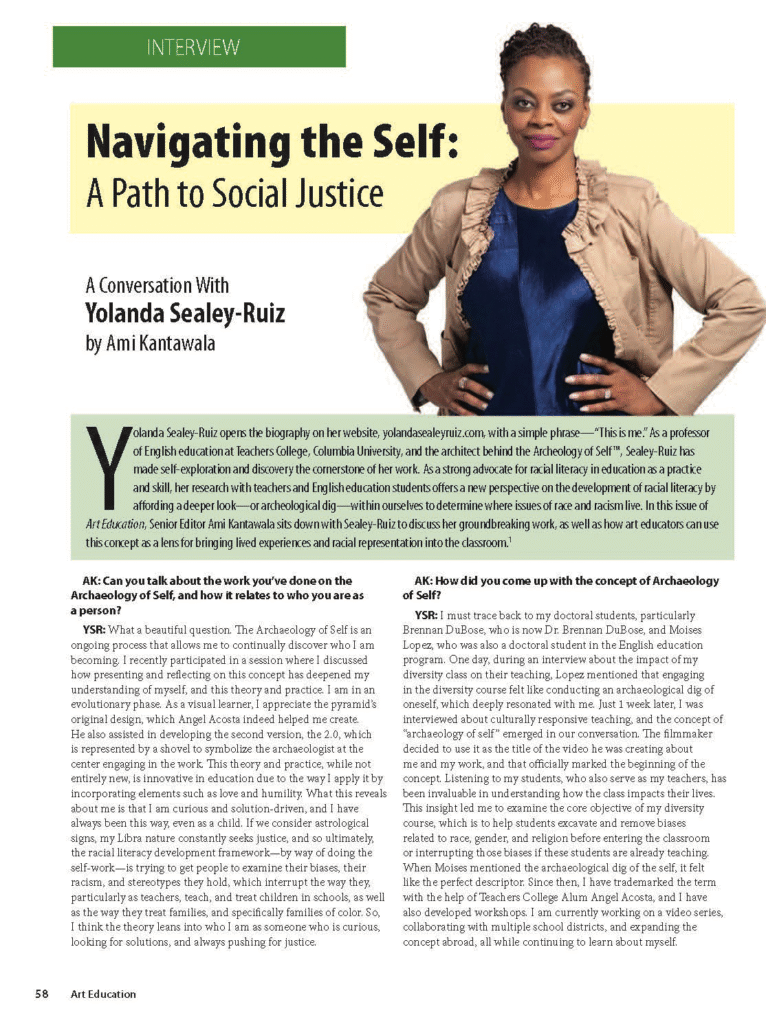
Navigating The Self
In this interview, Ami Kantawala speaks with Yolanda Sealey-Ruiz about her “Archaeology of Self™” framework, which promotes racial literacy through deep self-exploration to uncover bias and advance social justice. Sealey-Ruiz emphasizes critical love, historical literacy, and community-building, encouraging educators and artists to use personal reflection and art as tools for equity and transformation.

Unveiling The Invisible
In this interview, Ami Kantawala speaks with Derald Wing Sue about the importance of addressing racism and microaggressions in education, defining microaggressions as everyday slights that often target marginalized groups. Sue advocates for cultural competence and offers strategies to build racial literacy, facilitate difficult dialogues, and create inclusive learning environments.
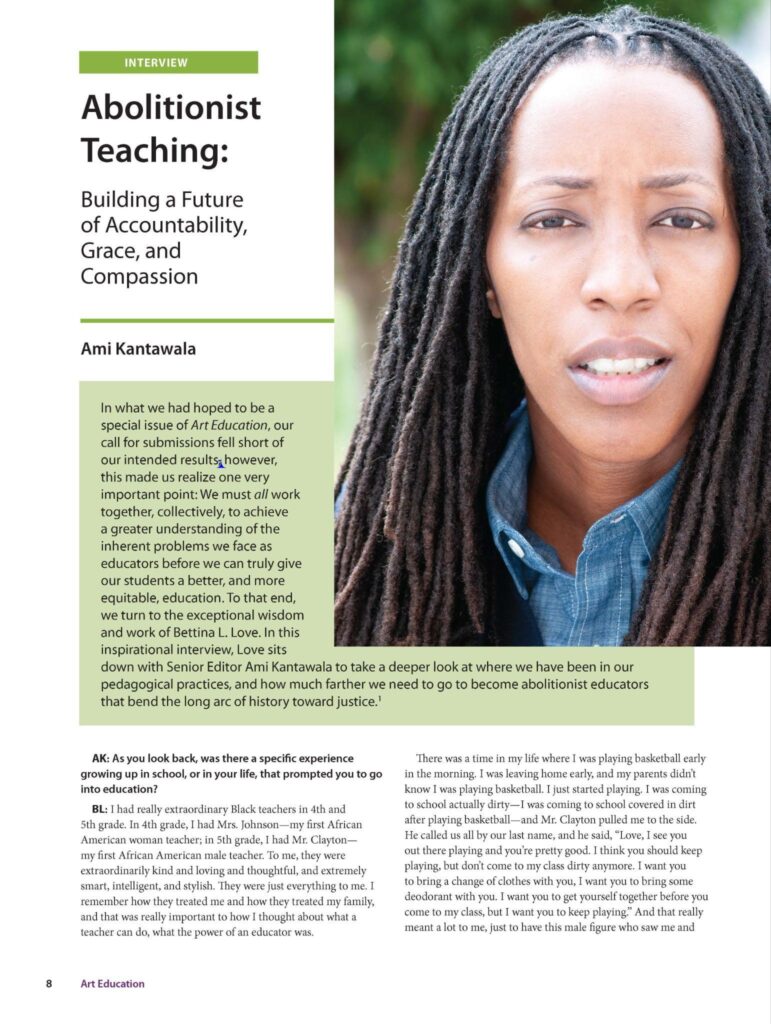
Abolitionist Teaching
In this interview, Ami Kantawala speaks with Bettina L. Love about how her experiences with systemic racism and inspiring Black educators shaped her commitment to antiracist and abolitionist teaching. Love emphasizes building civically engaged, equitable schools rooted in love and accountability, and advocates for using art as a tool for healing, joy, and liberation.
Let's Connect
Your engagement with these editorials and interviews is a vital part of building more just, creative, and inclusive learning environments. If you’re interested in exploring these ideas further—whether through conversation, collaboration, or consultation—please don’t hesitate to reach out. I welcome your voice as part of this ongoing dialogue for equity and innovation in education.
